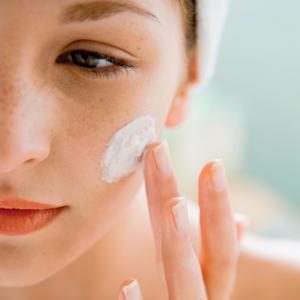Wrinkle creams won’t reverse skin damage
Q. Do wrinkle creams work?
The American Academy of Dermatology says that over-the-counter wrinkle creams do little or nothing to reverse wrinkles.
However, the U.S. Food and Drug Administration has approved prescription tretinoin cream to treat aging skin. In addition, the FDA has approved lasers for skin treatment.
Tretinoin cream, which is a vitamin A derivative, is sold under the brand names Altinac, Atralin, Avita, Renova, Retin A Micro Gel, Retin-A and Tretin-X.
Tretinoin cream is approved for reducing the appearance of fine wrinkles, roughness and dark spots.
It will not eliminate wrinkles. It will not restore skin.
Lasers remove layers of skin. Laser therapy is an outpatient treatment requiring anesthesia.
The FDA is studying the safety of acids known as skin peelers. The agency ordered manufacturers of products containing alpha hydroxy acids to include a label warning that the acids may increase sunburn risk. The FDA advises using sun protection when using these products.
As your skin ages, it becomes thinner and can take longer to heal when injured. Sunlight is a major cause of skin aging. Nothing can completely undo sun damage. However, you will still benefit from using sun protection.
Dermatologists use the term photoaging to describe aging caused by sun exposure. With repeated exposure to the sun, the skin loses the ability to repair itself, and the damage accumulates. People with fair skin and a history of sun exposure develop more signs of photoaging than those with dark skin.
Here are some tips to care for your aging skin:
• Protect your skin and prevent future wrinkles by limiting the time you spend in the sun. Wear protective clothing such as wide-brim hats and long-sleeve shirts. Use sunscreen when outdoors, even in winter.
• Use a sunscreen with a sun protection factor (SPF) of at least 15. Look for products with labels that say they are water resistant and protect against both types of harmful sun rays - UVA and UVB.
• Don't use sunlamps and tanning beds.
• Don't smoke. People who smoke tend to have more wrinkles than nonsmokers of the same age, complexion, and history of sun exposure. Cigarette smoking causes biochemical changes in our bodies that accelerate aging. It also has been shown that people who smoke for many years tend to develop an unhealthy yellowish hue to their complexion. One study showed that facial wrinkling, while not yet visible, can be seen under a microscope in smokers as young as 20. These signs can be greatly diminished, and in some cases avoided, by giving up smoking. Even people who have smoked for many years, or smoked heavily at a younger age, show less facial wrinkling and improved skin tone when they quit smoking.
• Use moisturizers. Though moisturizers can't prevent wrinkles, they can temporarily mask tiny lines and creases.





















































